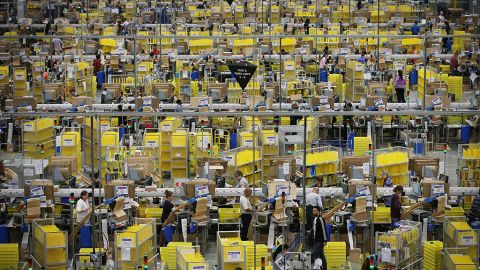Blame China? Amazon Could Be the One Killing More American Jobs

“Alexa: find me a job.”
Americans are anxious that jobs are being destroyed faster than they are being created. When looking for a culprit, China is often in our political crosshairs. But what if Amazon is displacing more Americans workers than China? Given Amazon’s rapid growth and their use of automation, it is entirely possible.

We are then left with a vexing question:
How do we create a human-first economy when what is beneficial to us as consumers may not align with what’s best for American workers? In other words, what’s good for the goose may not be good for the gander. Our intent focus on China may have more to do with our sense of nationalism than the economic reality.
As many commentators have pointed out, our growing imbalance between output and a need for American workers has less to do about trade (with countries like China), and much more to do with automation. Don’t blame China, blame the robots.

“If not China, what then explains these jobs losses? It’s simple: factories don’t need as many workers as they used to, because robots increasingly do the work.”-Wolfgang Lehmacher, head of supply chain and transport industries at the World Economic Forum. From the Forbes Op-Ed, “Don’t Blame China For Taking US Jobs“
While economists have estimated that our trade imbalance with China may have eliminated upwards of 2 million jobs, a recent piece by MarketWatch’s Rex Nutting argued that this number could be eclipsed by Amazon’s impact on American workers. Nutting focused his analysis on the 6.2 million American workers in the GAFO (General Merchandise, Apparel and Accessories, Furniture and Other Sales) sector.






